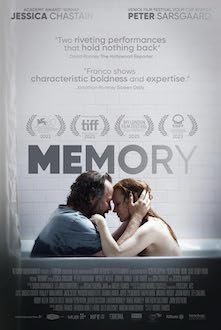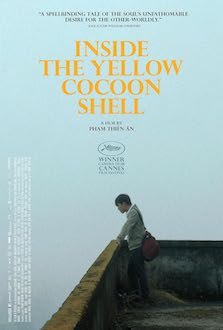Direction: Michel Franco
Country: USA
Mexican writer-director Michel Franco, whose body of work includes After Lucia (2012) and Chronic (2015), returns with Memory, a taut, beautifully composed drama where every moment holds weight. The film traces the journey of Sylvia (Jessica Chastain), a Brooklyn-based social worker, single mother, and recovering alcoholic, who discovers a sense of solace in her strained family dynamics through her relationship with Saul (Peter Sarsgaard), a stranger grappling with early onset dementia. However, things get complicated as they grow closer.
There’s a real emotional heft to Memory as it weaves together themes of trauma, resentment, guilt, hope, and healing. Chastain and Sarsgaard give life to understated yet memorable characters with their riveting performances.
Assuring that his fine narrative development leads to a positively simplistic resolution, Franco directs the film with both elemental allure and haunting familiarity. He skillfully shapes every aspect of this poignant exploration of healing love with an ultra-realistic vision and precise calibration, avoiding clichés or despair while maintaining authenticity.








































